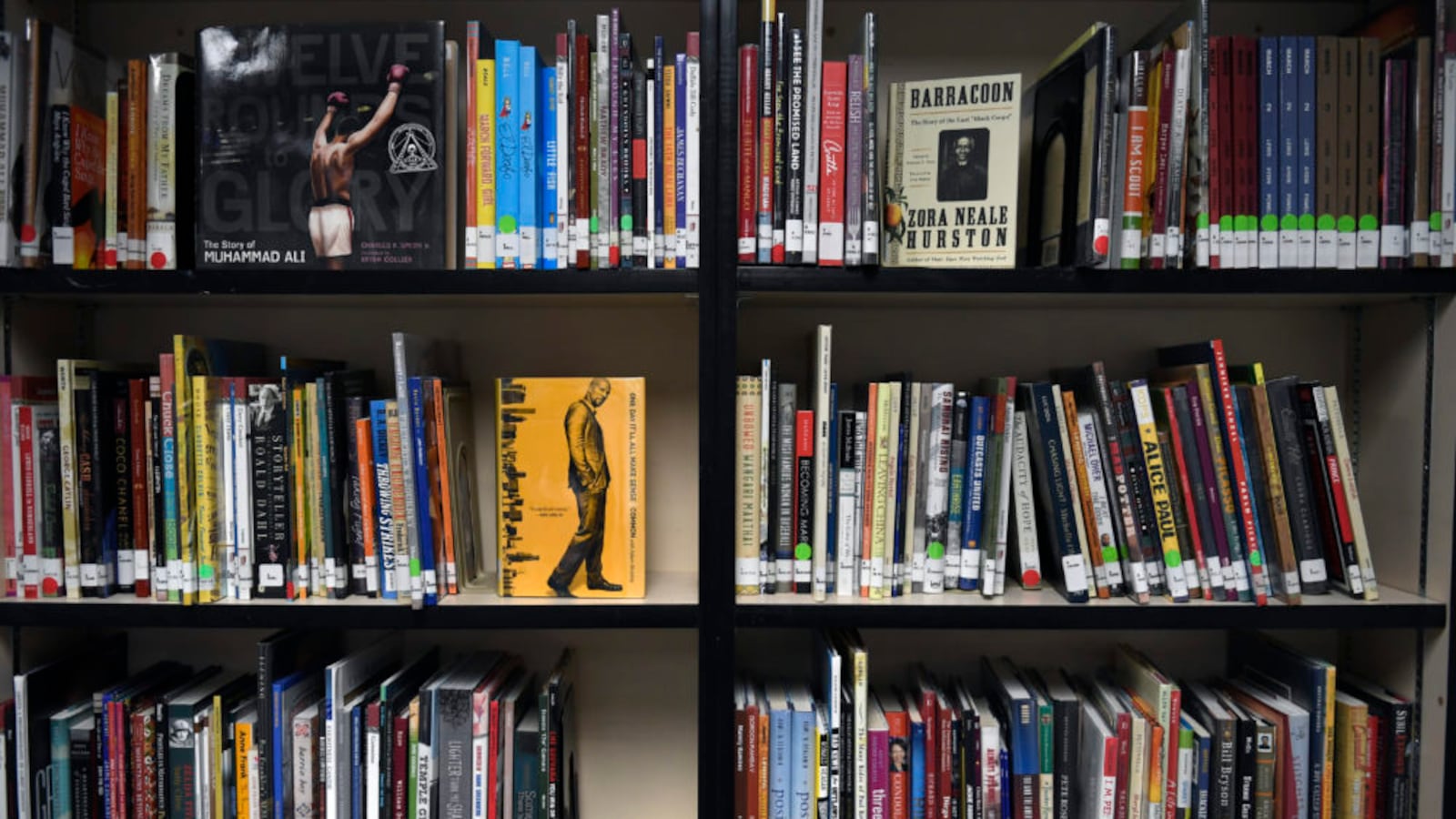In 2014, I got my first teaching job at a brand new high school in Detroit. The building had once been an elementary school with a fully functioning library. There was even a built-in card catalog. Now, though, it was empty, and the position of librarian didn’t exist. When we held a community book drive to fill the shelves, we ended up with a ramshackle collection of old, random, age-inappropriate books, some print encyclopedias, and an eclectic mix of cookbooks.
Two years later, that room had become a dumping ground for unused supplies, and the school football team frequently used it as a meeting space. The bookshelves were disorganized, their alphabetization long ago destroyed. In fact, not a single area school I have worked at in the past nine years has had a functioning library.

When I was growing up, I spent much of my free time in my metro Detroit school library. It’s where, in the 1990s and aughts, I discovered my love for historical fiction. I remember fondly the book recommendations that my elementary and middle school librarians would give me. I sought to bring that same joy of reading to my high school history and English students. But how could I inspire them if the room was dusty and the books old, tattered, and mostly irrelevant?
Study after study has shown that effective library programs can increase student literacy and test scores and create more equitable student outcomes. Having access to the skills needed to decode text and other media impacts our students now and forever. Literacy can make or break their school performance and enhance their career and civic participation. All our students should have access to a school library and a certified librarian to help improve reading levels and foster critical thinking and source analysis.
This is the moment when we should have more positions for school librarians and media specialists who can meet the growing needs of our students. Social media thrives on misinformation, and students have few tools to discern between fact, opinion, and manipulation. At the same time, Michigan school libraries are going extinct. The Michigan Department of Education statistics from December 2019 show that only 8% of Michigan schools have a full-time librarian on staff.
How could I inspire them if the room was dusty and the books old, tattered, and mostly irrelevant?
There is no world in which this statistic isn’t alarming. Students cannot become media literate, learn valuable research skills, or understand how to engage responsibly with the vast amount of information they have access to if no one is available to support them in those endeavors.
And fewer libraries and librarians create even more work for Michigan teachers. At a time of teacher shortages, putting the burden of creating, curating, and organizing a school library on the teaching staff of our schools might just be the straw that breaks the camel’s back. In every teaching job I’ve had, I’ve spent time reading books to recommend to my students and scouring garage sales and used book sales at my local libraries. At one job, we got a grant to get a “library” on carts, which were kept in a storage closet and brought out by us English teachers. We, teachers, had to manage the entire project, from the digital catalog to the app-based check-out system.
I’ve been heartened by some recent attempts by Michigan lawmakers to force change, including a bill that would require a certified media specialist for each school library and another that would ensure every school has a useful and functional library to begin with — even though those bills are unlikely to pass. We need something to change at schools like mine, where the absence of a library and librarian hurts students and strains educators.
Michigan students should have a place to go to research new topics, explore their passions, process the information they constantly receive, and sometimes just escape into the wonderful world of a book. We must continue to call on our lawmakers and districts to fund libraries for all Michigan schools. Our students should be able to rely on a phrase from one of my favorite childhood book series, Harry Potter: “When in doubt, go to the library.”
Joy Lyman is a history and English teacher and instructional coach at FlexTech High School Brighton in Brighton, Michigan. She is a member of the inaugural Michigan Teacher Leadership Collaborative, a program for highly effective teachers led by The Education Trust-Midwest and Teach Plus.

